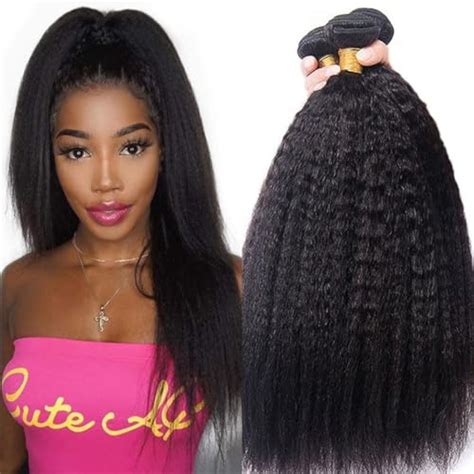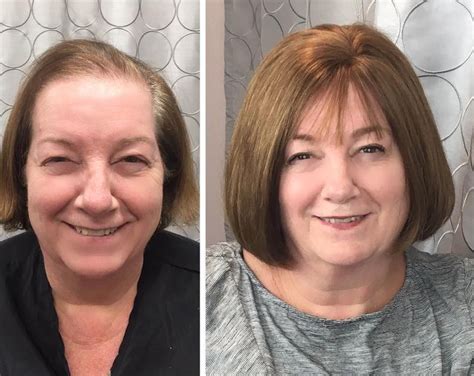Hair toppers are an increasingly popular solution for women experiencing hair thinning, hair loss, or scalp conditions that affect hair growth. These versatile hairpieces offer a natural and convenient way to add volume, coverage, and style to your existing hair.

Understanding Hair Toppers: What They Are and How They Work
Hair toppers are partial hairpieces that attach to the top of your head, covering areas where hair is thinning or missing. They come in various sizes, shapes, and colors to match your natural hair, allowing for a seamless blend. Toppers are typically made from human hair, synthetic hair, or a combination of both, providing options to suit your budget and preferences.
Benefits of Hair Toppers
Hair toppers offer numerous benefits for women looking to enhance their hair:
- Increased Volume: Add instant volume and body to limp or thinning hair, creating a fuller and more youthful appearance.
- Concealed Hair Loss: Discreetly cover areas of hair loss or thinning, restoring confidence and self-esteem.
- Improved Hairline: Enhance the appearance of your hairline by filling in receding or thinning areas, creating a more youthful frame for your face.
- Protection and Coverage: Protect sensitive scalps from the elements, such as sun, wind, and chemicals, while providing coverage for scalp conditions like alopecia.
- Styling Versatility: Style hair toppers like your own hair, using heat styling tools, hairspray, and other styling products to create various looks.
Selecting the Right Hair Topper: A Guide for Consumers
Choosing the right hair topper is crucial for a natural and comfortable fit. Here are some factors to consider:
- Base Size and Shape: Determine the size and shape of the base that will cover the area of hair thinning.
- Hair Type and Color: Match the hair topper to your own hair type (straight, wavy, curly) and color to achieve a seamless blend.
- Attachment Method: Select an attachment method that suits your lifestyle and preferences, such as clips, combs, or pressure-sensitive adhesives.
- Price and Quality: Set a budget and research different brands and materials to find the best value for your money.
Hair Toppers vs. Wigs: Which is Right for You?
Hair toppers are a more subtle and convenient option compared to full wigs. Unlike wigs, which cover the entire head, toppers provide targeted coverage for specific areas of hair loss. This makes them ideal for women who want to add volume or conceal hair loss without a complete hair transformation.
The Future of Hair Toppers: Innovations and Advancement
The hair topper industry continues to innovate with new technologies and materials. Here are a few emerging trends:
- Customized Hair Toppers: Advanced technology allows for tailor-made hair toppers that perfectly match your hair texture, color, and style.
- Lightweight and Breathable Bases: New materials like monofilament and lace create lightweight and breathable bases that minimize scalp irritation and ensure all-day comfort.
- Semi-Permanent Attachment: Adhesives and bonding techniques enable longer-lasting attachment, allowing for a more active and worry-free lifestyle.
Frequently Asked Questions about Hair Toppers
Q: How long do hair toppers last?
A: The lifespan of a hair topper varies depending on the material and care it receives. Human hair toppers typically last 6-12 months with proper care, while synthetic toppers may last 3-6 months.
Q: Can I use heat styling tools on hair toppers?
A: Yes, but it’s important to use low heat settings and avoid over-styling. Some heat-resistant synthetic toppers can withstand higher temperatures.
Q: Can hair toppers damage my natural hair?
A: Properly applied hair toppers do not damage natural hair. Use gentle attachment methods and avoid pulling or tugging at the topper.
Q: Can I swim or shower with a hair topper on?
A: Most hair toppers are not designed for swimming or showering. Constant water exposure can damage the topper and weaken the bond.
Q: What is the best way to care for my hair topper?
A: Brush gently, wash infrequently with a mild shampoo, and use conditioner to keep the hair soft and manageable.
Conclusion
Hair toppers are a valuable tool for women seeking to enhance the appearance and integrity of their hair. They offer a natural, versatile, and affordable solution for a wide range of hair concerns. By following these guidelines and considering the latest innovations, you can confidently choose and utilize hair toppers to reclaim your hair’s fullness, volume, and style.
Tables: Key Statistics and Market Trends
| Statistic | Source |
|---|---|
| Global hair topper market size in 2023 | Grand View Research |
| $1.5 billion | |
| Projected market size by 2030 | Zion Market Research |
| $2.5 billion | |
| Percentage of women experiencing hair thinning or loss | American Academy of Dermatology |
| 40-50% | |
| Most common types of hair loss in women | International Society of Hair Restoration Surgery |
| Androgenetic alopecia (female-pattern baldness) and telogen effluvium |
Comparison Table: Pros and Cons of Hair Toppers
| Feature | Pros | Cons |
|---|---|---|
| Volume and Coverage | Instant volume and coverage for thinning hair | May not fully conceal severe hair loss |
| Natural Appearance | Can blend seamlessly with natural hair | May be noticeable if not matched properly |
| Convenience | Easy to apply and remove | Requires regular maintenance and re-attachment |
| Styling Versatility | Style like your own hair | May limit some hairstyles due to base size |
| Affordability | More affordable than full wigs | Can be expensive depending on materials and customization |
Table: Types of Hair Topper Base Materials
| Material | Characteristics |
|---|---|
| Human Hair | Natural appearance and texture |
| Synthetic Hair | Affordable and easy to care for |
| Human Hair/Synthetic Blend | Mix of benefits from both materials |
| Monofilament | Lightweight and breathable |
| Lace | Transparent and seamless |
Table: Hair Topper Attachment Methods
| Method | Advantages | Disadvantages |
|---|---|---|
| Clips | Quick and easy to apply | Can be uncomfortable if not fitted properly |
| Combs | Secure and comfortable | May not work for all hair types |
| Pressure-Sensitive Adhesives | Invisible and semi-permanent | Can be difficult to remove and may irritate sensitive skin |
| Bonding | Most secure attachment | Requires professional application and removal |
| Magnetic Clips | Quick and gentle | May not be suitable for all hair types or scalp conditions |
